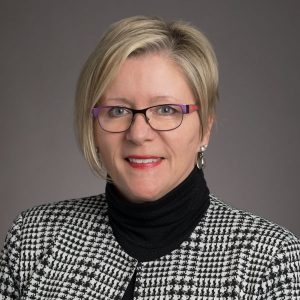Healing at Home: Bayshore’s Wound Care Program

Bayshore is known for delivering high-quality, evidence-based home and community professional care clinical services to 350,000 Canadians each year and one of our most in-demand nursing care services is wound care.
Wounds have many different causes, including surgical procedures, workplace injuries, sports injuries, diabetes, ulcers, burns, radiation treatment and pressure injuries. While many wounds heal fairly quickly on their own, others require a specialized wound care management plan provided by a interprofessional care team consisting of nurses, physicians, dieticians, physiotherapists and wound care specialists, who are all part of Bayshore’s Wound Care Program.
What causes wounds to heal slowly?
Many factors can affect wound healing. In some patients, health conditions such as diabetes, heart disease, malnutrition or arterial disease can interfere with the healing process. They can also turn a relatively minor wound, such as a cut or scrape, into something more serious.
In adults, age-related skin changes can slow down recovery. Certain medications, such as immunosuppressive drugs prescribed for rheumatoid arthritis and psoriasis, can also contribute to slower healing. And if a wound becomes infected, this can further delay healing and cause tissue damage.
We care for many patients who have wounds that take weeks or months to heal. As you might imagine, when a wound is resistant to healing, this can have a significant impact on a person’s independence and quality of life, in addition to causing ongoing pain and discomfort.
How does Bayshore’s Wound Care Program help?
Based on evidence-based, clinical practice guidelines from Wounds Canada and the Registered Nurses Association of Ontario, we provide an interprofessional team based approach to care for people with all types of wounds, right in the comfort of their own home or a nearby clinic. But it wasn’t always that way.
When I was a young nurse, patients with complex wounds would have to be hospitalized which often led to hospital acquired infections. Now, we know that patients heal better in their own home environment, and we bring advanced clinical practice to them.
Our nurses and other members of the care team are very knowledgeable about wound care, and they will educate you on understanding your wound’s underlying causes and what’s preventing it from healing.
If a patient suffers from malnutrition, a wound can take longer to heal. If a patient has poor blood circulation—limiting the amount of oxygen that reaches the wound—that’s a problem we need to address. If a patient has a diabetic foot ulcer, it’s important to get their blood glucose levels under control. If someone is receiving chemotherapy, that’s another factor to consider as we develop an individualized care plan.
These are just a few examples, but they illustrate the same thing: only by understanding everyone’s unique health conditions and circumstances can we provide effective person-centred care. To achieve this, we conduct thorough health assessments and create customized treatment plans based on current evidence and best clinical practices. The goal of this holistic, person-centred approach is to achieve the best possible outcome for our patients and optimize their health and well-being.
As part of this holistic approach, we often call on our broader health-care team, including physicians, dietitians, physiotherapists and occupational therapists, to help with wound assessment, care planning, treatment and pain management. It’s a full team effort. During the COVID-19 pandemic, our team members have even offered virtual practice wound assessments and care consultations via virtual care, ensuring that our clients get the help they need.
How are Bayshore nurses educated in wound care?
Wound care is highly complex, and it requires advanced nursing knowledge, skills and competencies. We provide a three-level education program through which all our nurses complete foundational Level 1 training. To become a wound resource nurse, they can complete Level 2, and can then go on to become a wound care specialist by completing Level 3. Nurses can also undertake the International Interprofessional Wound Care Course (IIWCC) or complete a master’s degree in wound care.
Wound care is an ever-evolving care specialty, and Bayshore is committed to remaining a leader in the field. If you have questions about our Wound Care Program, please get in touch with our team.
Maureen Charlebois
Chief Nursing & Clinical Officer
